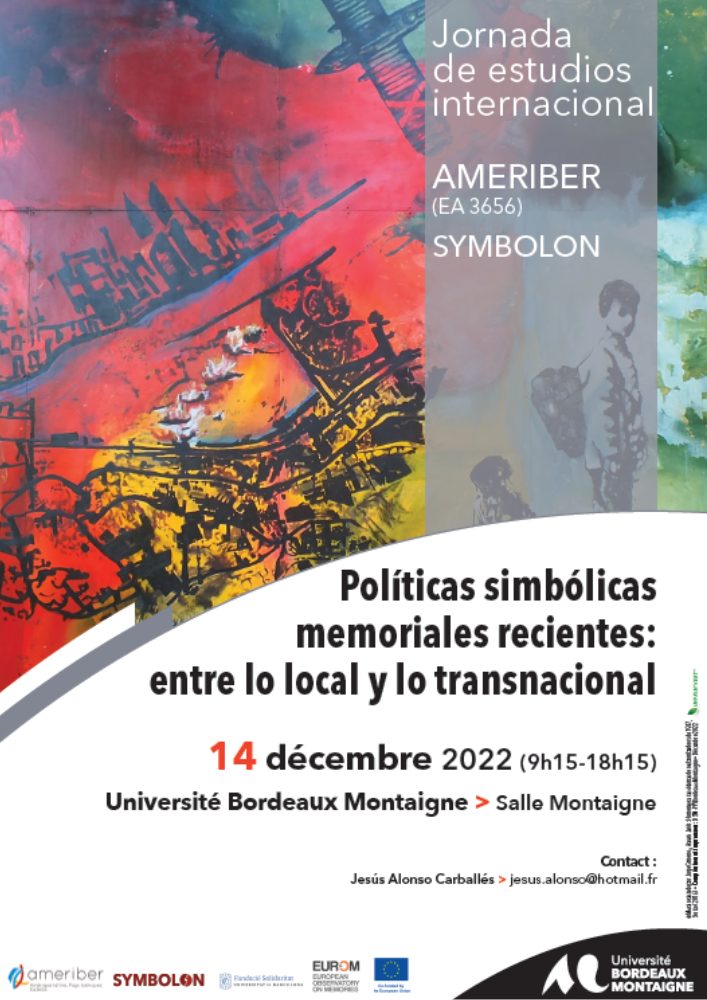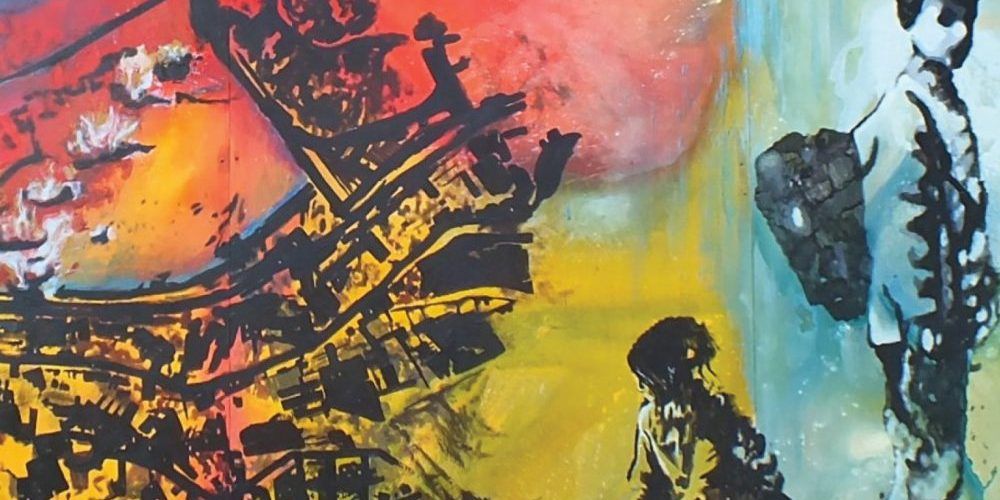- The programme aims to widen the study of new symbolic dynamics of memorial nature that have been implemented in recent years and analyse the new agents, both individual and collective, that from below have contributed with their actions to the resurgence of forgotten or marginalized past;
- Organized by the Université Bordeaux Montaigne in the framework of the project Ameriber (SYMBOLON) in collaboration with the the EUROM.

Traditionally, the symbolic policies related to the recovery of the past and the memory of events in the public space were the restricted feud of a series of actors closely linked to the State and to political power in the marketplace. In recent decades, however, we have witnessed a growing democratization of the appropriation and public dissemination dynamics of the past, coinciding with the memorial explosion that began in the last decades of the 20th century and continues today.
This unstoppable “resurgence” of yesterday, this growing omnipresence of the past in our societies is largely caused by the “eclipse of utopias” and by the decline of transmitted experience (Enzo Traverso); and can be framed within the global turn of Western societies from “present futures” to “present pasts” (Andreas Huyssen), a paradigm shift that has led to the presentism in which we find ourselves immersed (F. Hartog). As the philosopher Fina Birules pointed out two years ago, decades “from various angles, the past is replacing the future as a key locus of reference in political debate.”
There are numerous examples that, beyond the political sphere, could confirm this diagnosis within Western societies where the desire to recover and disseminate the memory (or to encourage oblivion) of certain events of the past is manifested everywhere: commemorations and recoveries of all kinds of historical events, erections/destructions of monuments, significance and redefinition of public space, historical recreations, cultural productions of all kinds based on the recovery of the past.
Within this increasingly complex and diversified framework, this seminar aims to study the new symbolic dynamics of a memorial nature that have been implemented in recent years; at the same time as analysing the new agents, both individual and collective, that from below have contributed with their actions to the resurgence of those forgotten or marginalized pasts and that on occasions have managed to significantly influence the formatted political agendas of those above. Diverse and multiple actors that we can encompass within the term of memorial “entrepreneurs” (Elisabeth Jelin), and under which the inspirers, promoters, designers, and computers of said policies would be included.
We will also be interested in the new spaces in which this recovery/forgetting of the past is concretized, from the urban physical space to the ethereal, but increasingly influential, digital universe. Without forgetting the protagonists, the people and the historical groups that are the object and objective of these recoveries, and that are often characterized as heroes or as victims, categories that often far from being exclusive highlight the ambiguity that this entails. some of the dynamics of recovery and oblivion deployed in recent decades.
Ultimately, we will try to observe these processes from a comparative perspective that highlights the local nature or the transnational dimension of the dynamics analyzed. In this sense, although our objective is to focus on the analysis of phenomena present in Spain and Latin America, we will also be interested in analyzing those proposals that have emerged in other horizons and have crossed borders and have also carved a niche for themselves among the memorial initiatives developed through both sides of the Atlantic.
Recomended bibliography
- BIRULES, Fina “La crítica de lo que hay: entre memoria y olvido”, Manuel Cruz (ed.) Hacia dónde va el pasado. El porvenir de la memoria en el mundo contemporáneo, Barcelona, Paidós, 2002.
- HARTOG François, Régimes d’historicité. Présentisme et expériences du temps, Paris, “Librairie du XXIe siècle”, Seuil, 2003.
- Andreas Huyssen, En busca del futuro perdido. Cultura y memoria en tiempos de globalización, México, Fondo de Cultura Económica, 2002.
- Elisabeth Jelin, Los trabajos de la memoria, Madrid, Siglo XXI, 2002.
Enzo Traverso, L’histoire comme champ de bataille. Interpréter les violences du XXe siècle, París, La Découverte, 2011.
Related report
Report | Traveling seminar to Toulouse and Bordeaux (France)

